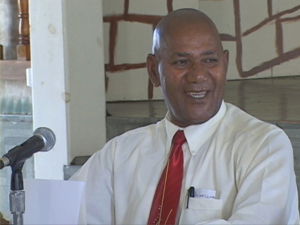Published 9 November 2017
Buckie Got It, St. Kitts and Nevis News Source
St. Kitts herpes vaccine trial represents a “frightening” ethical elapse, says ethics service head
Chicago, Illinois, November 9 2017 – The Herpes Vaccine Trial that took place in St. Kitts last year represented a “frightening” ethical elapse.
That is the view of Kayte Spector-Bagdady, chief of the University of Michigan Medical School’s Research Ethics Service.
A deceased scientist at Southern Illinois University School of Medicine who was lauded by SIU officials for his work to develop herpes vaccines apparently violated internal and government rules for research at the medical school, according to initial results of an SIU investigation.
The initial investigation by SIU’s institutional review board “has determined that serious noncompliance with regulatory requirements and institutional policies and procedures occurred,” SIU School of Medicine dean and provost Dr. Jerry Kruse wrote in an Oct. 6 response to a federal inquiry about William Halford’s genital herpes vaccine research.
Details of the alleged noncompliance were unavailable, and though SIU has submitted a full report on its investigation to the federal government, SIU spokeswoman Karen Carlson wouldn’t give any details Wednesday or release a copy of the report. She said SIU officials are continuing their own investigation.
The inquiry from the Office for Human Research Protections — part of the U.S. Department of Health and Human Services — came after stories in The State Journal-Register and Kaiser Health News that raised questions about the safety of an overseas vaccine trial conducted in 2016 by Halford’s Springfield-based company, Rational Vaccines.
If HHS determines that SIU violated any federal rules, that could jeopardize the medical school’s $15 million in ongoing federal research funding, according to Kayte Spector-Bagdady, chief of the University of Michigan Medical School’s Research Ethics Service.
The State Journal-Register obtained a copy of Kruse’s letter to the HHS office, with certain sections blacked out by SIU, in response to an Illinois Freedom of Information Act request.
Rational Vaccines’ chief executive officer, Agustin Fernandez III, didn’t respond to a phone message or an email from the newspaper Wednesday but previously said no one was harmed in the clinical trial, held between March 2016 and August 2016 in the two-island nation of St. Kitts and Nevis.
The fact that the clinical trial of a therapeutic vaccine for herpes patients took place without the oversight of an institutional review board at SIU or elsewhere to make sure patients’ safety was safeguarded has raised concerns in the scientific community.
A prominent doctor from Johns Hopkins Bayview Medical Center’s infectious diseases division, Jonathan Zenilman, told Kaiser Health News that Rational Vaccines was “patently unethical” when it conducted the St. Kitts trial without review board oversight.
Zenilman was unavailable for comment Wednesday. He also was unavailable when the newspaper tried to reach him in September.
The lack of institutional review board oversight was among concerns raised by reviewers of a scientific paper on the trial that was rejected for publication by the journal Future Virology before Halford’s cancer-related death June 22.
The rejection came despite Rational Vaccines’ news release, dated Oct. 17, 2016, which said Halford’s Theravax vaccine, using a live-but-weakened herpes virus, resulted in “stunning reduction in herpes symptoms.”
The trial involving 17 patients suggested that a “functional cure” for herpes “may be on the horizon,” according to the release.
Fernandez previously told The State Journal-Register that Rational Vaccines’ research attracted $7 million in investments from Silicon Valley billionaire Peter Thiel’s investment firm, Thiel Capital, and a related organization, Founders Fund, after the St. Kitts trial had taken place.
Kruse wrote in his letter to HHS that it was SIU’s understanding that Rational Vaccines was responsible for the management and oversight of the trial, including work with a St. Kitts physician to monitor participants and get necessary government approval.
SIU first learned about the trial on Oct. 13, 2016, Kruse said.
“Because SIU was not involved in the trial in any way and viewed it as the business operations of a private company, SIU did not feel that any discussion with Dr. Halford about the trial was warranted,” Kruse wrote. “To date, there also has been no indication that Mr. Fernandez or Dr. Halford viewed the activities of Rational Vaccines Inc. to be activities of SIU.”
However, Kruse indicated in his letter that SIU officials probably should have been aware of the St. Kitts trial before it happened.
“I assure you that SIU takes this situation very seriously,” he wrote, “and I am committed to identifying any missing controls that facilitated the conduct of a human subject trial without appropriate oversight.”
Kruse added that he wants to ensure that future research at SIU “is both safe and in compliance with all regulations.”
HHS apparently is trying to determine whether Halford, chief science officer and part-owner of Rational Vaccines, was “acting as an agent” of SIU when he conducted the St. Kitts trial, Spector-Bagdady said.
HHS spokeswoman Diane Gianelli said HHS “does not discuss details of ongoing evaluations” and wouldn’t comment further about agency’s inquiry.
Halford told the newspaper before his death that he made sure his work with Rational Vaccines was separate from his work as an SIU researcher. If Halford intermingled that work on the medical school’s campus, violations of internal or governmental rules may have occurred, Carlson said.
“Our understanding was that he was not conducting Rational Vaccines’ research here,” Carlson said.
Even if Halford portrayed himself as an SIU representative while conducting the trial or while trying to get the results published in a scientific journal, SIU probably can’t be held liable in a lawsuit or by the federal government unless SIU officials gave their blessing to that behavior or exercised a major failure in expected oversight, Spector-Bagdady said.
Spector-Bagdady, who has not been involved in Halford’s research, read a copy of Kruse’s letter at the request of the SJ-R and said it appeared to be an “appropriate response.”
The SJ-R reported in September that the government of St. Kitts and Nevis launched an investigation into Rational Vaccines. The country’s chief medical officer said the company didn’t obtain approval from local officials before conducting the trial.
The status of the St. Kitts investigation is unclear. Chief medical officer Dr. Hazel Laws couldn’t be reached for comment.
It doesn’t appear that Rational Vaccines broke any U.S. laws, but the St. Kitts trial, conducted without institutional review board oversight, represented a “frightening” ethical lapse, Spector-Bagdady said.
Rational Vaccines may face a long road to convince scientists in the United States and around the world that any future clinical trials will be conducted correctly, she said.
“It would be extremely hard to rebuild trust,” she said.
Photo 1 – Kayte Spector-Bagdady, chief of the University of Michigan Medical School’s Research Ethics Service






